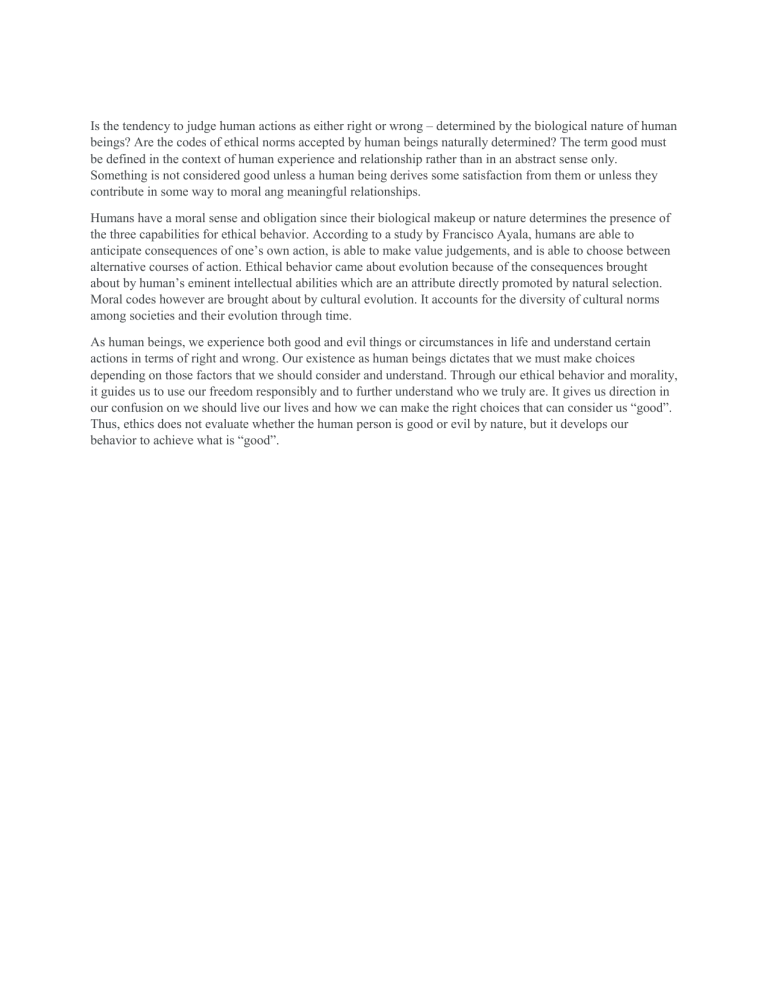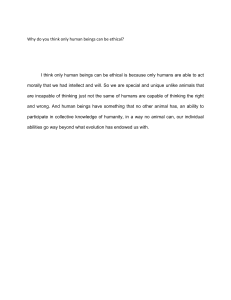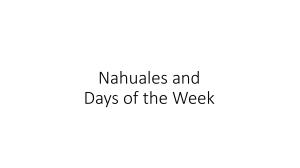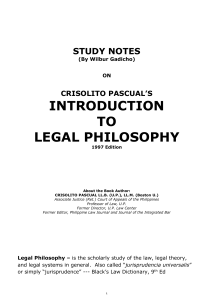
Is the tendency to judge human actions as either right or wrong – determined by the biological nature of human beings? Are the codes of ethical norms accepted by human beings naturally determined? The term good must be defined in the context of human experience and relationship rather than in an abstract sense only. Something is not considered good unless a human being derives some satisfaction from them or unless they contribute in some way to moral ang meaningful relationships. Humans have a moral sense and obligation since their biological makeup or nature determines the presence of the three capabilities for ethical behavior. According to a study by Francisco Ayala, humans are able to anticipate consequences of one’s own action, is able to make value judgements, and is able to choose between alternative courses of action. Ethical behavior came about evolution because of the consequences brought about by human’s eminent intellectual abilities which are an attribute directly promoted by natural selection. Moral codes however are brought about by cultural evolution. It accounts for the diversity of cultural norms among societies and their evolution through time. As human beings, we experience both good and evil things or circumstances in life and understand certain actions in terms of right and wrong. Our existence as human beings dictates that we must make choices depending on those factors that we should consider and understand. Through our ethical behavior and morality, it guides us to use our freedom responsibly and to further understand who we truly are. It gives us direction in our confusion on we should live our lives and how we can make the right choices that can consider us “good”. Thus, ethics does not evaluate whether the human person is good or evil by nature, but it develops our behavior to achieve what is “good”.




